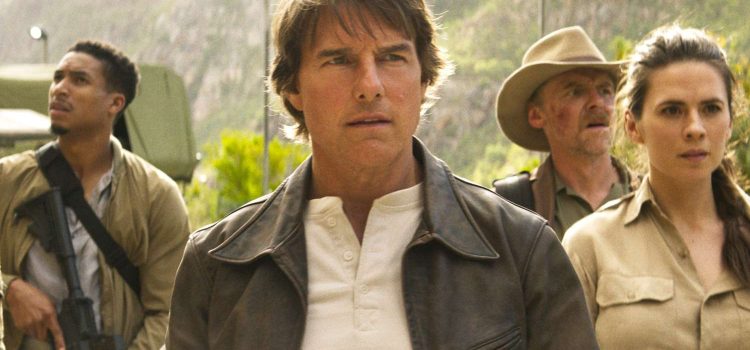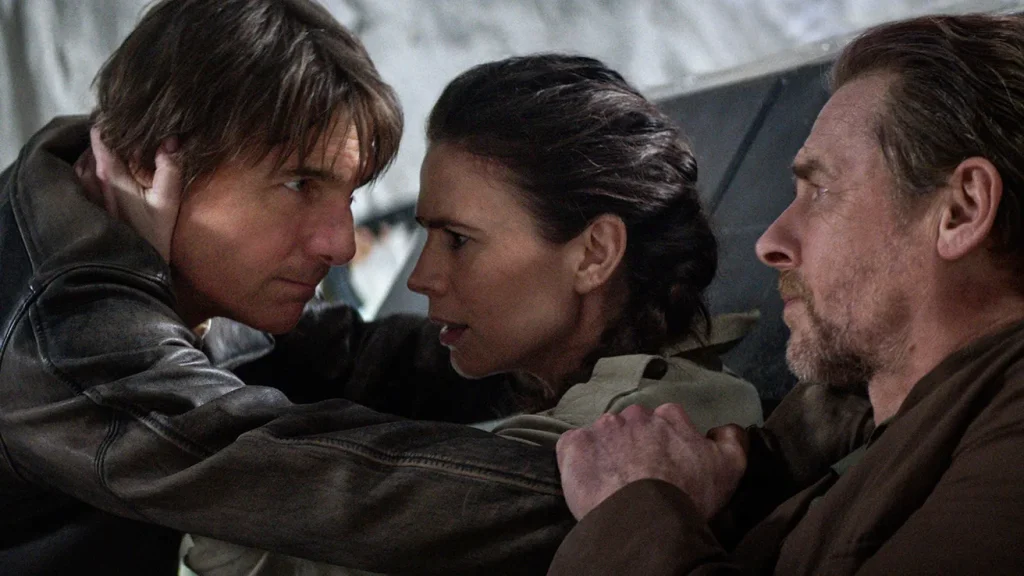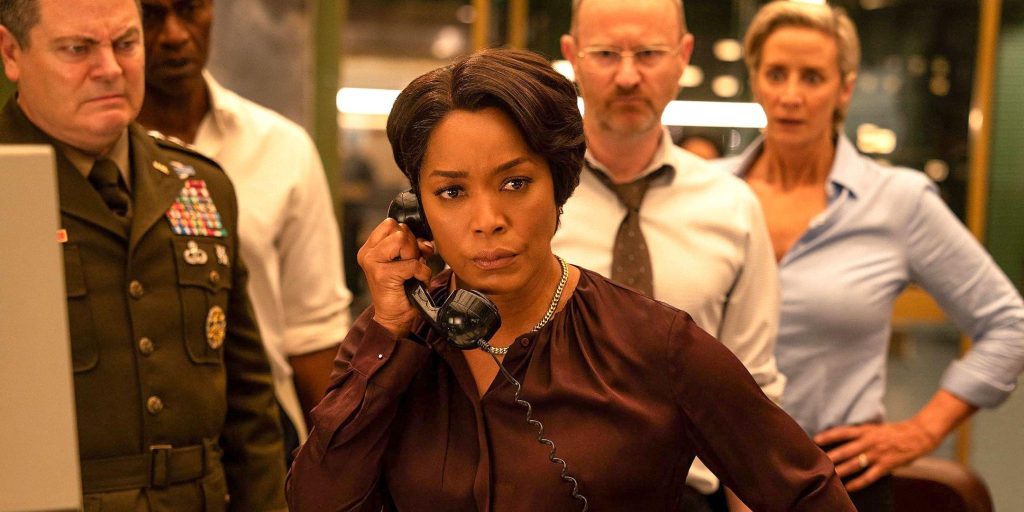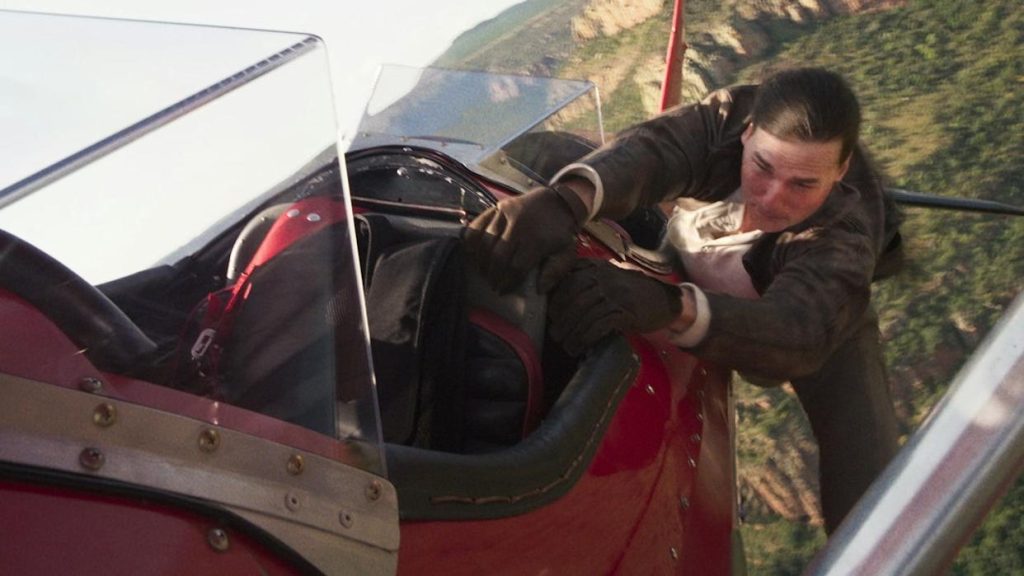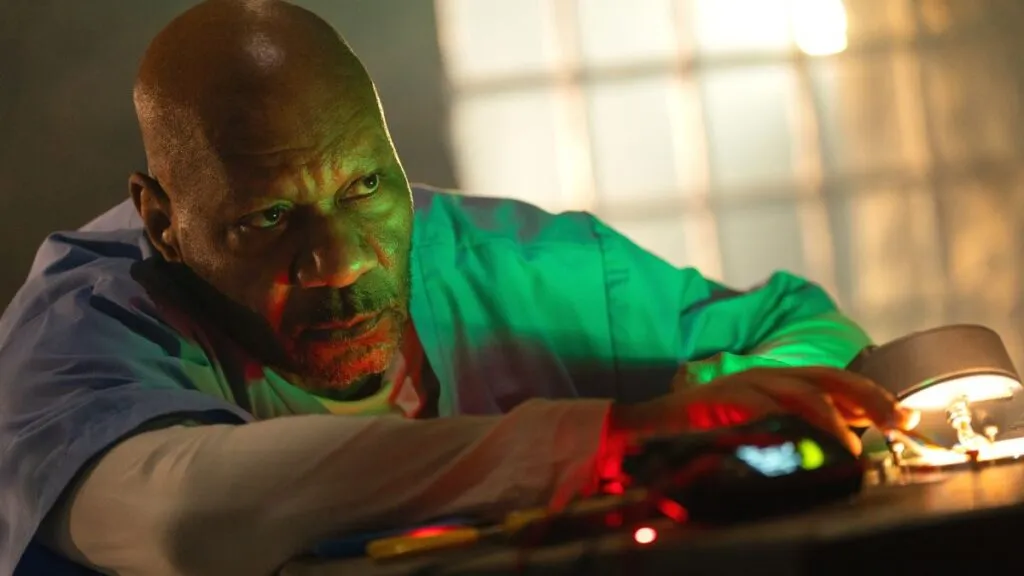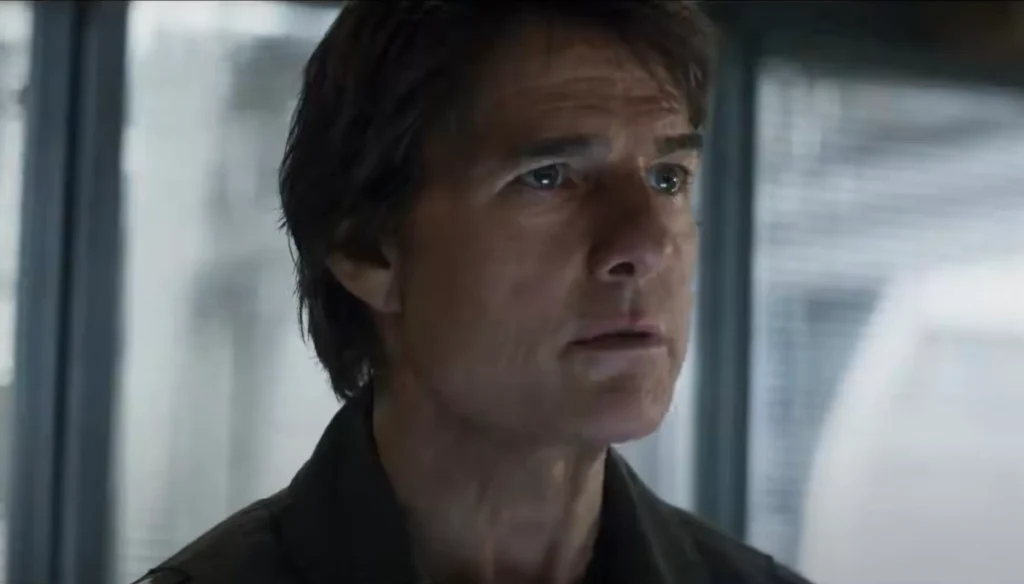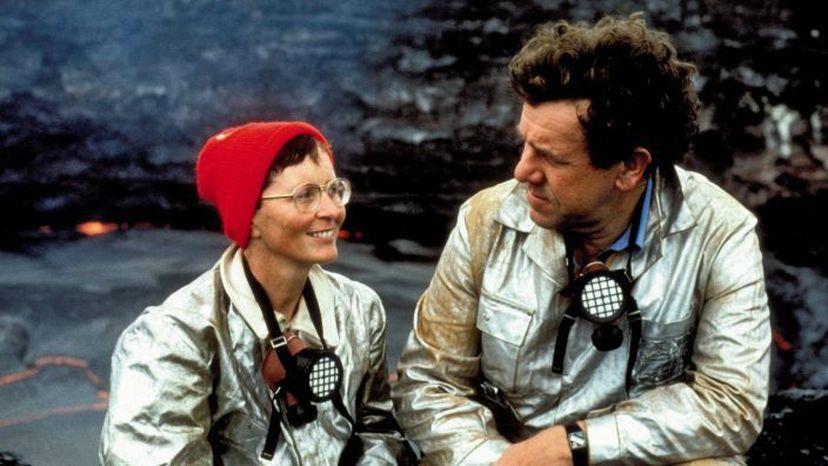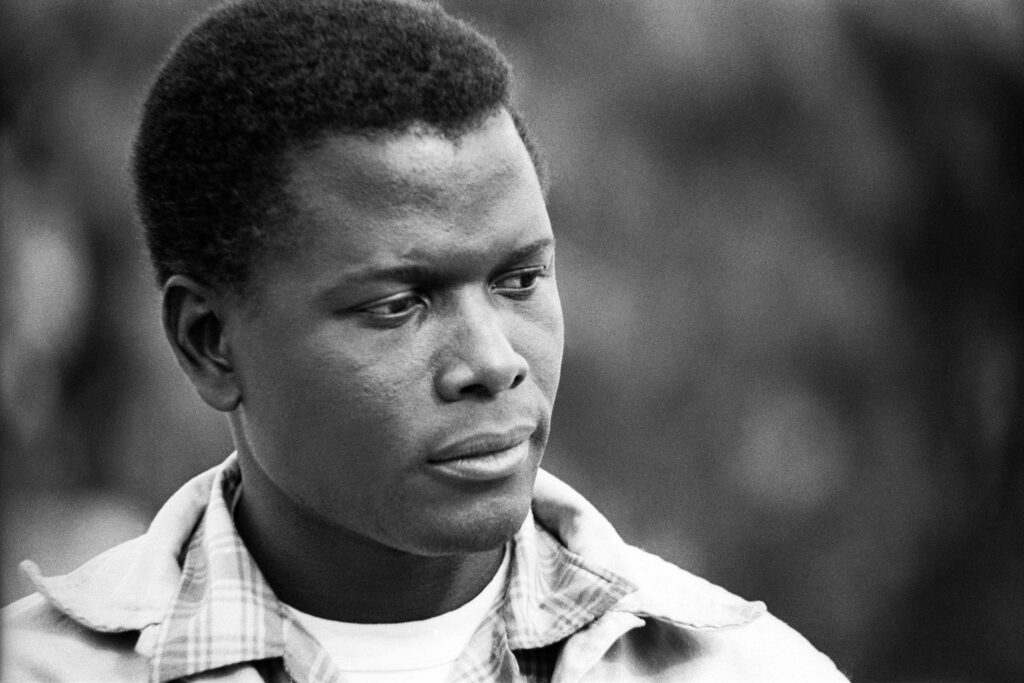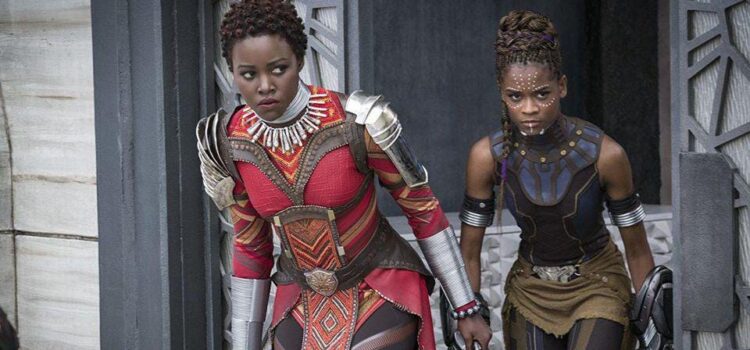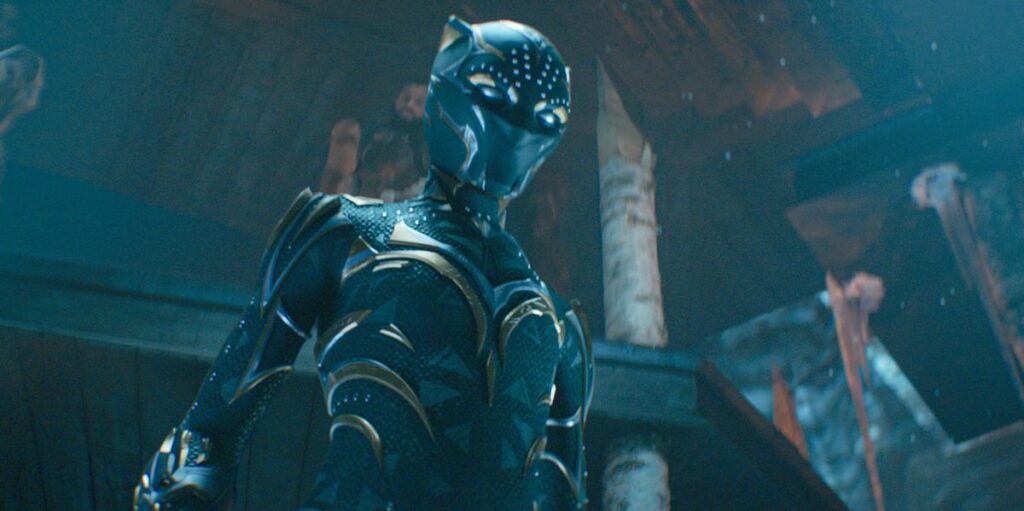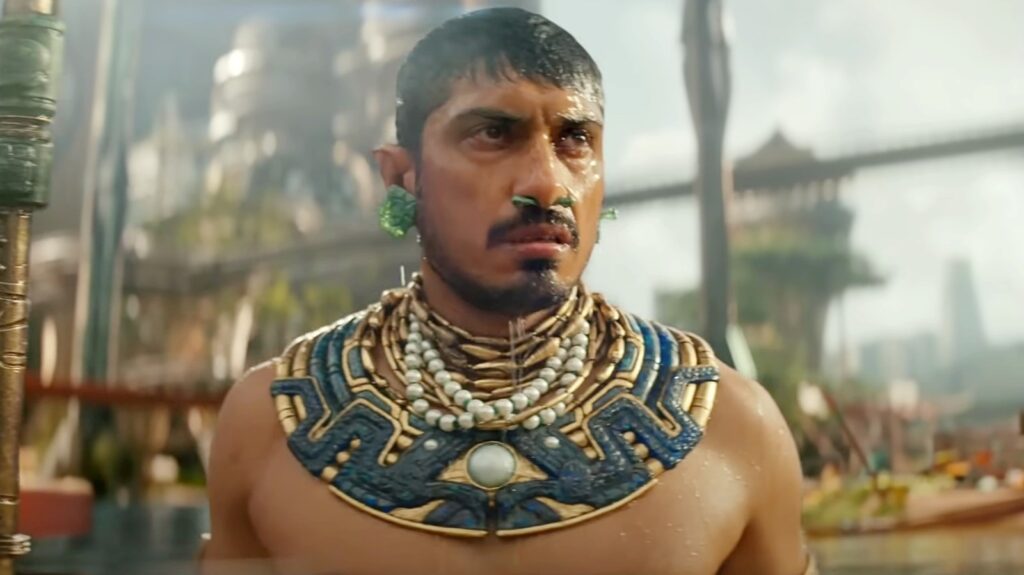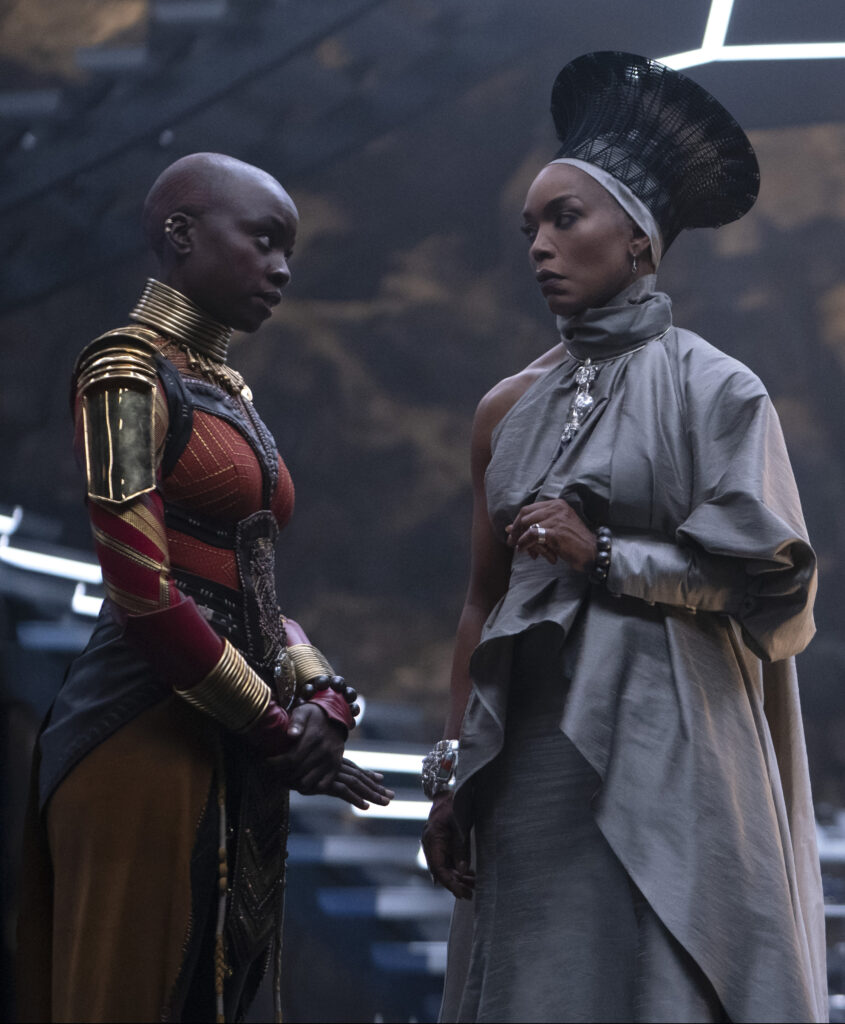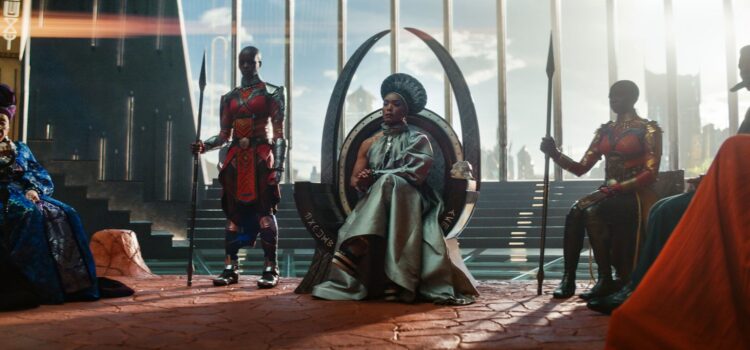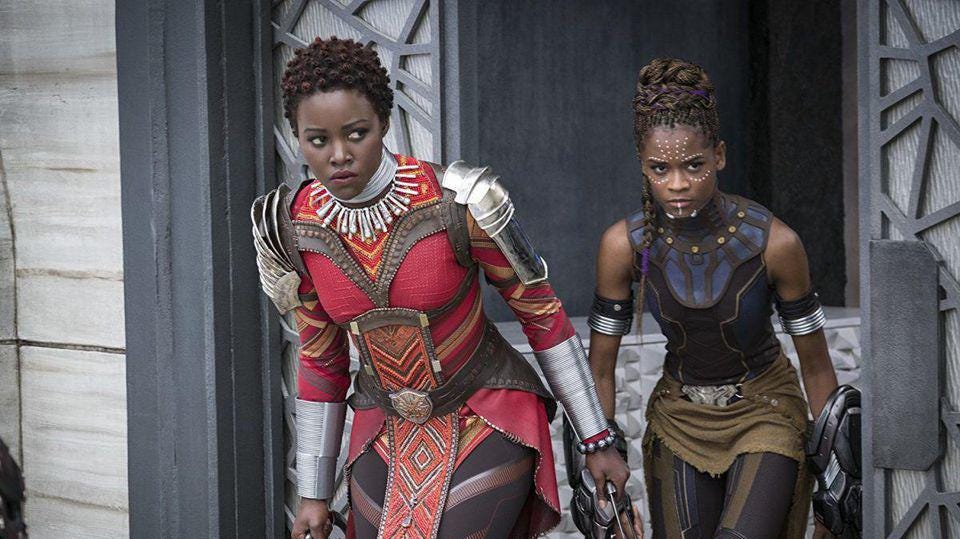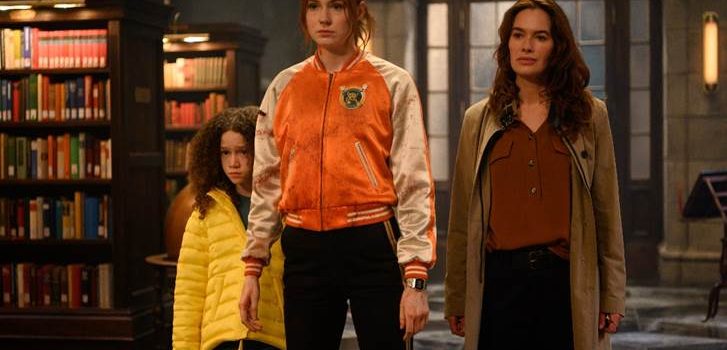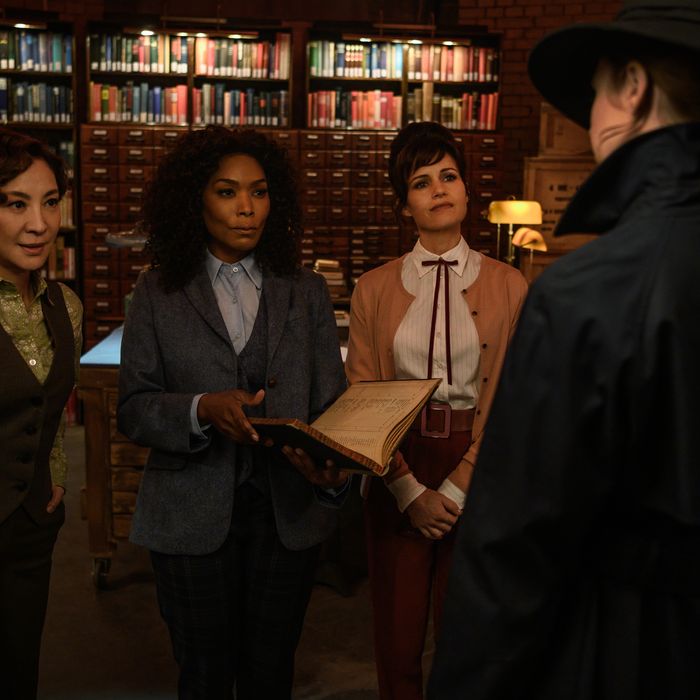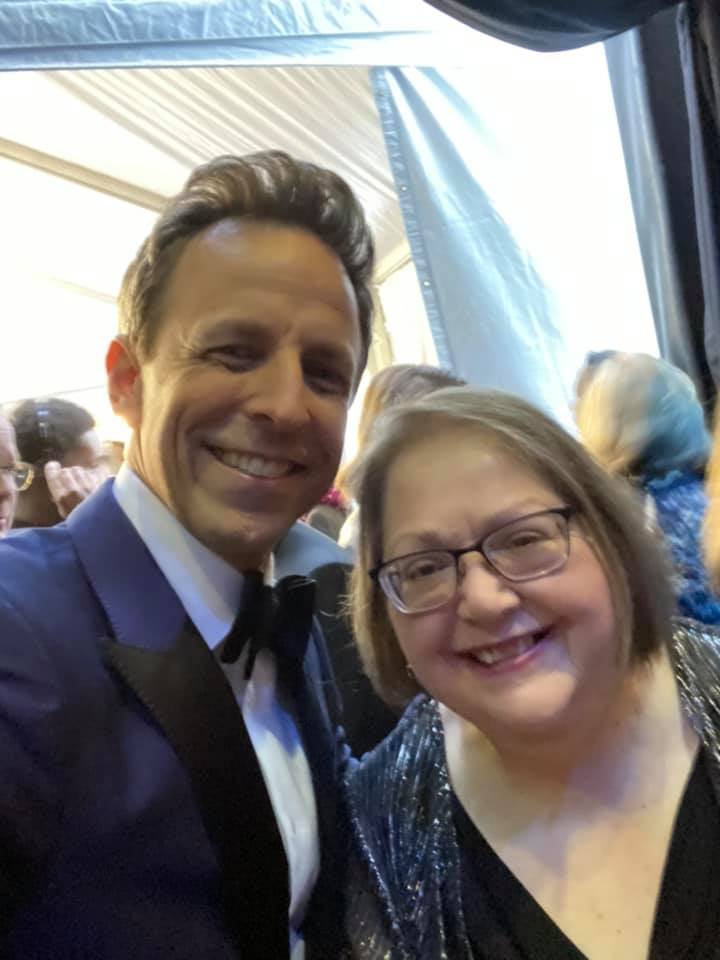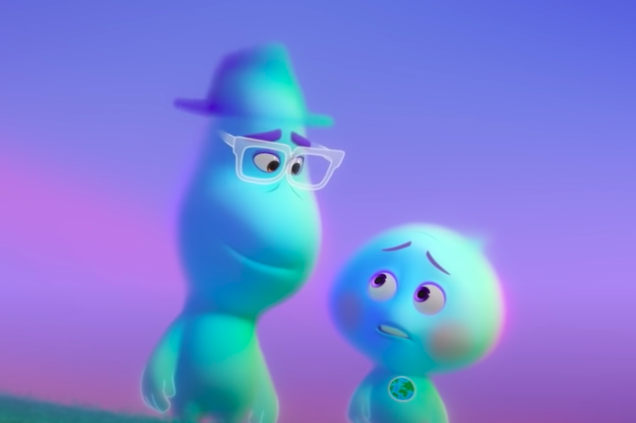By Lynn Venhaus
Superspy Ethan Hunt is not a superhero, but Tom Cruise is built like one in talent and temperament. Perhaps his superpower is his character’s fierce and unwavering loyalty to his Impossible Missions Force ‘team,’ as exemplified in the full-throttled grand finale “Mission: Impossible – The Final Reckoning.”
Over eight movies in 29 years, he has played the maverick secret agent trying to stop an enemy force to prevent global disaster with the fierce bravado everyone expects. Now 62, he continues to demonstrate remarkable physical dexterity, performing his own stunts – and they are next level here, his best yet.
Eye-popping, jaw-dropping and breathtaking feats in the sky, water and on the ground — the derring-do is dazzling once again, for writer-director Christopher McQuarrie pushes the team farther with each chapter.
With his daredevil gravity-defying aerial sequences and underwater action in the Bering Sea, he outdoes the thrilling train escapade and stunning motorcycle dive in “Dead Reckoning, Part I.”
Preventing the world from Doomsday this time around is exciting, exhilarating and surprisingly emotional, a fitting way to kick off the summer movie season and effectively wrap up this series – if this is its swan song.
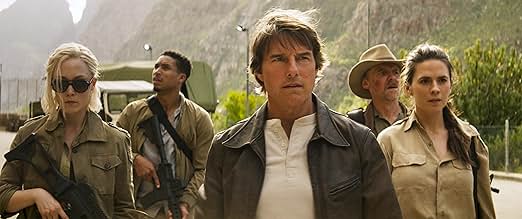
Starting in 1996, this storied espionage franchise followed the missions of an elite covert government agency, a movie adaptation of an award-winning and popular television series created by Bruce Geller that ran for seven seasons (1966-1973) on CBS.
That’s when Cruise as Hunt, Henry Czerny as Eugene Kittridge and Ving Rhames as technical wizard Luther Stickell first appeared, directed by Brian DePalma. The ensemble cast grew to include Simon Pegg as Benji Dunn beginning in “Rogue Nation.” Kittridge, the former IMF deputy director, became CIA director and showed up in the last two films.
Sequels arrived in 2000, 2006, 2011, 2015, 2018, 2023 and now. After DePalma, John Woo, JJ Abrams and Brad Bird directed the first four, McQuarrie took over with “Rogue Nation” (MI5) and has been at the helm ever since.
McQuarrie, Oscar winner for “The Usual Suspects” original screenplay, also co-wrote the script with Erik Jendresen, who was on board for the last installment. They’ve crafted a smart, suspenseful storyline that believably escalates the tension.
“Our lives are the sum of our choices,” we’re told, and after a flashback montage of the previous seven films, we are caught up to speed (literally and figuratively) since the movie a mere three summers ago.

That’s when the “Entity” materialized as a massive artificial intelligence that could wage the apocalypse because it is so advanced it manipulates reality and the truth to cause endless chaos. Hunt and the IMF team continue their search for this terrifying AI. By now, it has infiltrated intelligence networks all over the globe – with the world’s governments and a mysterious ghost from Ethan’s past on their trail.
In this version, the dire threat it represents is made clearer, and we grasp its power, so we understand the higher stakes. Esai Morales returns as the morally bankrupt Gabriel, who wants control of the Entity. He is a slippery, shadowy figure, ruthless to the core.
Like Harrison Ford as Indiana Jones, Cruise has crafted Hunt to make him his own, with his specific energy and intensity. Of course, Hunt goes rogue because he doesn’t follow rules that won’t produce a favorable result. The action gets more elaborate and the plots more high-tech focused with each chapter, and you expect Cruise to be all systems go, deliver the adrenaline rush.
With some new allies this time, Hunt has brought a fearless band together, and their warmth and humor stand out. Hayley Atwell’s Grace is a former pickpocket and thief and Pom Klementieff is former assassin Paris, who both turned on Gabriel and are now helping IMF.
Greg Tarzan Davis is agent Degas, who has switched sides from hunting Hunt, and Shea Wigham’s character arc as Briggs is best not spoiled as allegiances shift and the plot twists.
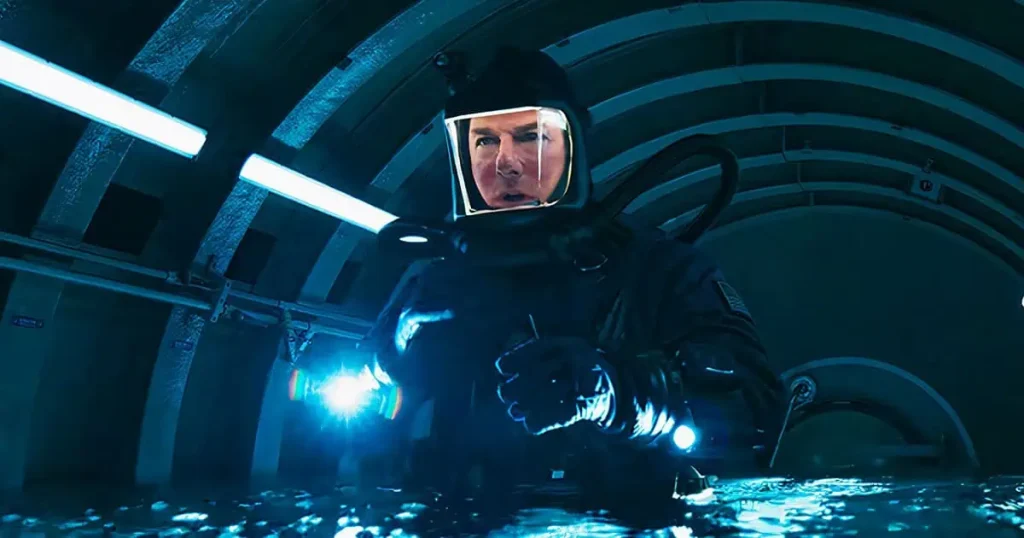
A pleasant surprise is the return of Rolf Saxon as William Donloe, a CIA analyst who was a minor character in the first film but is back in a more substantial way this go-round. His memorable wife Tapeesa is played by the charming Lucy Tulugarjuk.
Links to the past and present are threaded throughout this spectacle, which is another fine gesture.
The sprawling cast of formidable character actors includes Angela Bassett as U.S. President Erika Sloane, the former CIA director, and playing the military brass are Nick Offerman as Chairman of the Joint Chiefs of Staff General Sidney, Holt McCalleny as Secretary of Defense Serling Bernstein, and Janet McTeer as Secretary of State Walters. Tramell Tillman is a Navy ship commander and Hannah Waddingham as a rear admiral in charge of an aircraft character.
While there are physical encounters, most of the film’s details feature very precise digital cyberspace codes and gadgets, and timing is everything as the IMF team races against the clock.
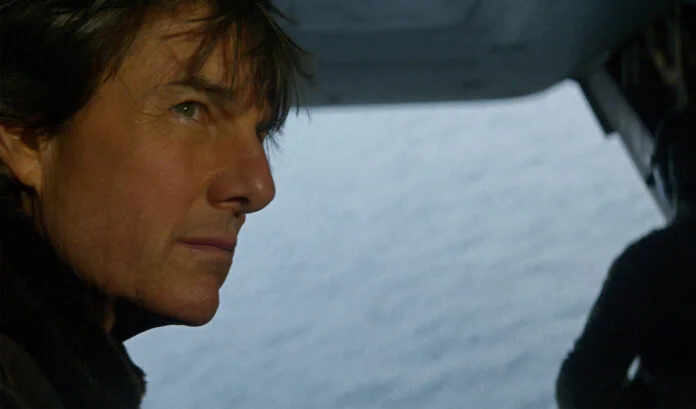
The film, at 2 hours and 49 minutes, doesn’t feel draggy, but it could have been shaved a little in the mega-action set pieces. Nevertheless, fans are certain to embrace all the elements they’ve grown to enjoy over these 29 years, not the least of which is that iconic music. Hearing composer Lorne Balfe’s orchestrations on Lalo Schifrin’s unmistakable theme song is one of this franchise’s best features.
McQuarrie and Cruise have collaborated on more than this franchise, and it’s a potent pairing — on “Valkyrie” in 2008, followed by “Jack Reacher” and “Edge of Tomorrow.” McQuarrie also contributed to the “Top Gun: Maverick” script.
But this is their legacy. And if they don’t continue, this will stand alone in a significant way. You can be assured they’ll “figure it out.” “Mission: Impossible – The Final Reckoning” isn’t perfect, but it is a dandy experience.

“Mission: Impossible – The Final Reckoning” is a 2025 action adventure directed and co-written by Christopher McQuarrie. It stars Tom Cruise, Hayley Atwell, Simon Pegg, Ving Rhames, Pom Klementieff, Nick Offerman, Holt McCalleny, Angela Bassett, Shea Wigham, Greg Tarzan Davis, Hannah Waddingham, Rolf Saxon, Tramell Tillman. Janet McAteer and Lucy Tulugarjuk. It is rated PG-13 for sequences of strong violence and action, bloody images, and brief language and the run time is 2 hours, 49 minutes. It opens in theatres May 23. Lynn’s Grade: A-

Lynn (Zipfel) Venhaus has had a continuous byline in St. Louis metro region publications since 1978. She writes features and news for Belleville News-Democrat and contributes to St. Louis magazine and other publications.
She is a Rotten Tomatoes-approved film critic, currently reviews films for Webster-Kirkwood Times and KTRS Radio, covers entertainment for PopLifeSTL.com and co-hosts podcast PopLifeSTL.com…Presents.
She is a member of Critics Choice Association, where she serves on the women’s and marketing committees; Alliance of Women Film Journalists; and on the board of the St. Louis Film Critics Association. She is a founding and board member of the St. Louis Theater Circle.
She is retired from teaching journalism/media as an adjunct college instructor.


